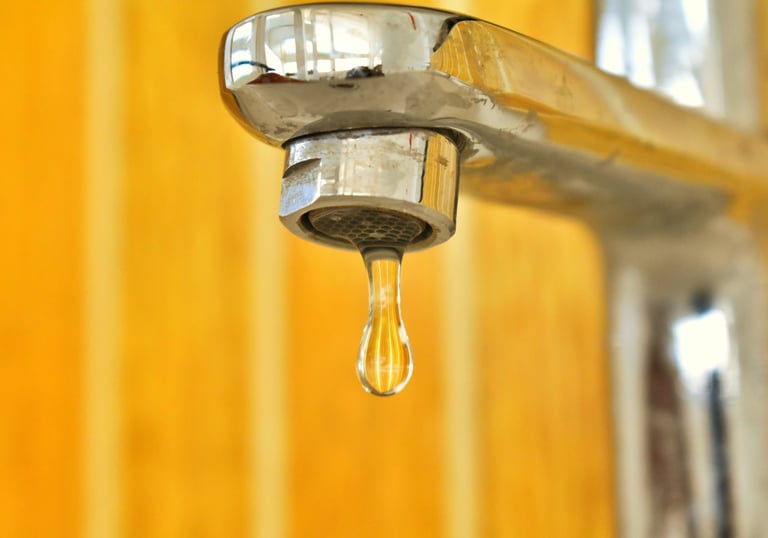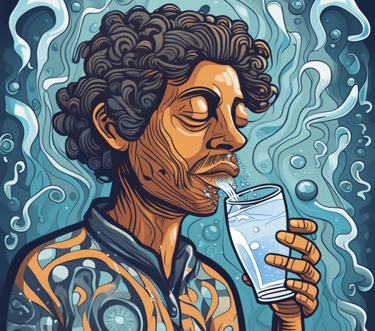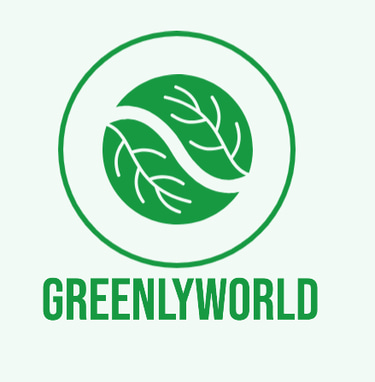How To Know If Your Tap Water is Safe and Why It's Important
Tips to check if your tap water is safe and reasons to why it matter
GUIDES AND TIPS
Greenly World
7/23/20234 min leer
We turn on the tap without a second thought, expecting clean water to come pouring out. But have you considered just how important having access to clean tap water truly is, and which things to look for to make sure your water at home is safe, and what do about it. In this article, we'll deepdive into that
Table of Content:
Guides and Tips
Health Benefits of Clean Tap Water
Eco friendly Benefits of Clean Tap Water
Countries with the Cleanest Water
Summary
Clean water is essential for life itself. Our bodies are over 60% water and we need it for virtually every bodily function. Yet billions lack access to clean drinking sources, and many more rely on tap water of questionable quality.
Fortunately there are various ways to evaluate the safety of your tap water and ensure you have access to clean, healthy drinking water.
How to Check Your Tap Water Quality
The easiest first step is to examine three parameters - appearance, odor and taste.
Appearance: Look for cloudiness, color or particles in your running tap water. These could indicate sediment, rust or microbial growth.
Odor: Sniff the water to detect any strange smells like chlorine, rotten eggs (indicating bacteria) or chemicals.
Taste: Take a sip of water at different times of day to see if the taste changes. Any metallic, chemical or musty flavors could signal an issue.
Beyond these simple and practical checks, you can test for specific contaminants using affordable test kits or strips available online. Testing for:Heavy metals (lead, copper, arsenic) - safe levels below 15 ppb lead, 1 ppm copper, 10 ppb arsenic.
Nitrates - below 10 mg/l is considered safe; high levels can cause methemoglobinemia (associated with pallor, fatigue, weakness, headache, central nervous system depression) in infants.
Total dissolved solids (TDS) - below 500 mg/L is ideal; high TDS can impact taste.
Coliform bacteria - no coliform bacteria should be detectable to ensure water is disinfected properly.
Additional tests for disinfection byproducts, pesticides, volatile organic compounds and other contaminants may also provide insight into your water quality. However these can be quiet time demanding.
In addition to checking if your tap water is safe, there are good reasons to why having cleaning tap water is vitaly important, both for your health and for the planet. Here are a few below:
Health Benefits of Clean Tap Water
Drinking clean tap water provides numerous health benefits:
Hydration - Water hydrates your body, carries nutrients to cells and aids metabolism. The opposite which is dehydration can cause fatigue, headaches and other symptoms.
Nutrient absorption - Clean water helps your body efficiently absorb nutrients from food.
Prevention of Disease - Water which is contaminated can spread diseases like cholera and hepatitis among others.
By contrast, tap water treated to remove pathogens reduces risk of illness.
Toxin removal - The kidneys rely on clean water to filter and remove metabolic waste and toxins from your blood.
While showering or bathing in contaminated water does not spread diseases as easily as ingestion, it can still expose you to harmful chemicals that irritate skin, eyes and mucus membranes. Investing in a shower filter, can make a positive difference for your body.
Moreover, access to clean water is vitaly important, since it's estimated that roughly 830 000 people die from diarrheoal diseases resulting from unsafe water or water pollution
Environmental Benefits of Clean Tap Water
Clean tap water also has environmental benefits that sustain life and ecosystems:
Less pollution - When households and businesses have access to clean tap water, less plastic bottled water is used which helps reduce plastic pollution.
Wastewater recycling - Treated and recycled wastewater can be returned to rivers, lakes and groundwater, sustaining the water cycle.
Renewable resource -Unlike fossil fuels, water is a renewable energy source, and is sustainable via practices such as recycling, desalination and filtration.
Reduced stress on natural resources - Tapping into municipal water systems instead of groundwater reduces stress on fragile freshwater ecosystems.
Countries with the cleanest water
There is a few countries who have some of the cleanest water in the world, and depending on the sources, it's usually countries such as Iceland, Finland, Germany, New Zealand, Norway, Denmark, Canada, Singapore, Colombia and Switzerland. These countries have very strict filtration parameters and regulations and most of them have great natural freswater sources. If you reside in one of these countries, then perhaps water filtration options for home aren't necessary. If you live outside these countries, or in general regardless of countries want to be on the safe side, we recommend checking our reviews on water filtration for tap water and shower filtration.
Summary
There are practical ways you can check for your tap water we've provided with.
In summary, having access to clean, filtered tap water provides enormous benefits - for your health, for the environment and for global sustainability.
Simple solutions like shower filters, and water filtration for tap water can help ensure the tap water in your home meets the highest standards of purity.
Sources:
Centers for Disease Control and Prevention - CDC provides information on waterborne diseases and contaminants in drinking water:
https://www.cdc.gov/healthywater/drinking/public/water_diseases.htmlU.S. Environmental Protection Agency - EPA sets regulatory standards for drinking water contaminants:
https://www.epa.gov/ground-water-and-drinking-water/national-primary-drinking-water-regulationsHarvard School of Public Health - Study discusses potential health risks from tap water contaminants:
https://www.hsph.harvard.edu/news/hsph-in-the-news/tap-water-contaminants-and-health-risks/Michigan Medicine - Article lists parameters to check for evaluating tap water quality:
https://www.uofmhealth.org/health-library/hw161158U.S. Geological Survey - USGS provides data on common drinking water contaminants:
https://www.usgs.gov/mission-areas/water-resources/science/common-drinking-water-contaminants?qt-science_center_objects=0#qt-science_center_objectsEnvironmental Working Group - EWG's Tap Water Database contains information on tap water contaminants and quality:
https://www.ewg.org/tapwater/Mayo Clinic - Mayo Clinic discusses potential health effects from contaminated tap water:
https://www.mayoclinic.org/healthy-lifestyle/nutrition-and-healthy-eating/in-depth/water/art-20044256Ourworldindata - https://ourworldindata.org/water-access
Frontiers - https://www.frontiersin.org/articles/10.3389/fenvs.2022.880246/full




Contactos
greenlyworld@hotmail.com
¡Suscríbete a Nuestro Boletín para Obtener los Últimos Consejos sobre Eco-Amigabilidad y Salud!
